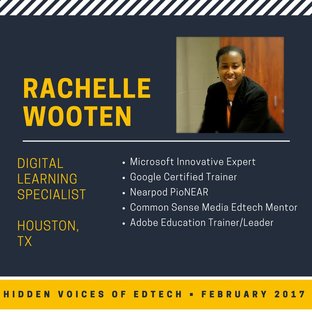As I sat in an Instructional Coaching session this week with coaching expert, Joellen Killion, she asked the group what were some examples of learning theories. I spouted out the one I most identified with as a teacher, constructivism. I was proud to know one of the answers- thanks to graduate school coursework. Then, she asked, "which one is most closely related to technology?". Feeling slightly humiliated because I did not know the answer to this one, I sat back and waited like everyone else for the answer. Connectivism. How did I miss that one?! After all, one of my classmates and I recently had a discussion about it! So, I decided to do some more research on the learning theory and found that while I lean more towards constructivism, I am a strong believer in and benefactor of connectivism as well.
In one of the articles I came across, Karen Stephenson says,
“Experience has long been considered the best teacher of knowledge. Since we cannot experience everything, other people’s experiences, and hence other people, become the surrogate for knowledge. ‘I store my knowledge in my friends’ is an axiom for collecting knowledge through collecting people (undated).” (Siemens, 2017 February 5)
What a mouthful! "I store my knowledge in my friends". I have had the privilege of learning and growing immensely thanks to the connections I've made with others through various technology: Twitter, Voxer, Facebook, Common Sense Educator, Nearpod Pionears, Edmodo, GroupMe, and Adobe Education Exchange. It also went on to mention how it's not about just knowing "what" and "how" but it's also about "where" we find information. When I don't know, I turn to my professional learning network and that same network turns to me.
In one of the articles I came across, Karen Stephenson says,
“Experience has long been considered the best teacher of knowledge. Since we cannot experience everything, other people’s experiences, and hence other people, become the surrogate for knowledge. ‘I store my knowledge in my friends’ is an axiom for collecting knowledge through collecting people (undated).” (Siemens, 2017 February 5)
What a mouthful! "I store my knowledge in my friends". I have had the privilege of learning and growing immensely thanks to the connections I've made with others through various technology: Twitter, Voxer, Facebook, Common Sense Educator, Nearpod Pionears, Edmodo, GroupMe, and Adobe Education Exchange. It also went on to mention how it's not about just knowing "what" and "how" but it's also about "where" we find information. When I don't know, I turn to my professional learning network and that same network turns to me.
As a digital learning specialist, and advocate for blended learning for students and professional learning, connectivism is the learning theory that supports this instructional model. After a closer review of my course, I see that I embedded activities supported by connectivist learning theories. For example, students use Skype to interview experts about communication in their workplace. They also use online discussions in Schoology to share their experiences about effective communication.
In this blended course, students will definitely have active learning experiences and engage in meaningful online connections where they learn from others.
References:
Siemens, G. (2017, February 5). Connectivism: A learning theory for the digital age.Retrieved from http://202.116.45.236/mediawiki/resources/2/2005_siemens_Connectivism_A_LearningTheoryForTheDigitalAge.pdf.
In this blended course, students will definitely have active learning experiences and engage in meaningful online connections where they learn from others.
References:
Siemens, G. (2017, February 5). Connectivism: A learning theory for the digital age.Retrieved from http://202.116.45.236/mediawiki/resources/2/2005_siemens_Connectivism_A_LearningTheoryForTheDigitalAge.pdf.

 RSS Feed
RSS Feed
